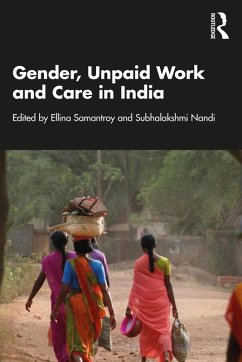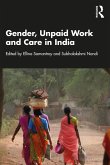Dieser Download kann aus rechtlichen Gründen nur mit Rechnungsadresse in A, B, BG, CY, CZ, D, DK, EW, E, FIN, F, GR, HR, H, IRL, I, LT, L, LR, M, NL, PL, P, R, S, SLO, SK ausgeliefert werden.
A key strength of this book is its showcasing of micro-examples of how gender norms around care and mobility and women's access to resources, affect women's work and employment. It provides important empirical evidence for how public services and infrastructure can be enablers of women's paid, unpaid and care work. This is one of the most interesting books on this subject coming out of the Indian context, that will help readers to not only understand the context of women's work in India, but also think proactively and differently about solutions towards creating better quality 'work' for women - both paid and unpaid.'
Deepta Chopra, Research Fellow, Institute of Development Studies, UK
'For India, labor force statistics document a sharp decline in already low labour force participation rates for Indian women. On the other hand, however, anyone familiar with the day-to-day lives of Indian women cannot fail to remark upon the whirlwind of activities they engage in, leaving little time for leisure. So how do we reconcile these two divergent observations? With chapters from outstanding researchers, this book brings together diverse perspectives to provide a holistic picture of women's work in both market and non-market activities. It is a must-read for anyone interested in understanding the institutional context of women's work in India and its implications for public policy.'
Sonalde Desai, Professor, University of Maryland, USA









